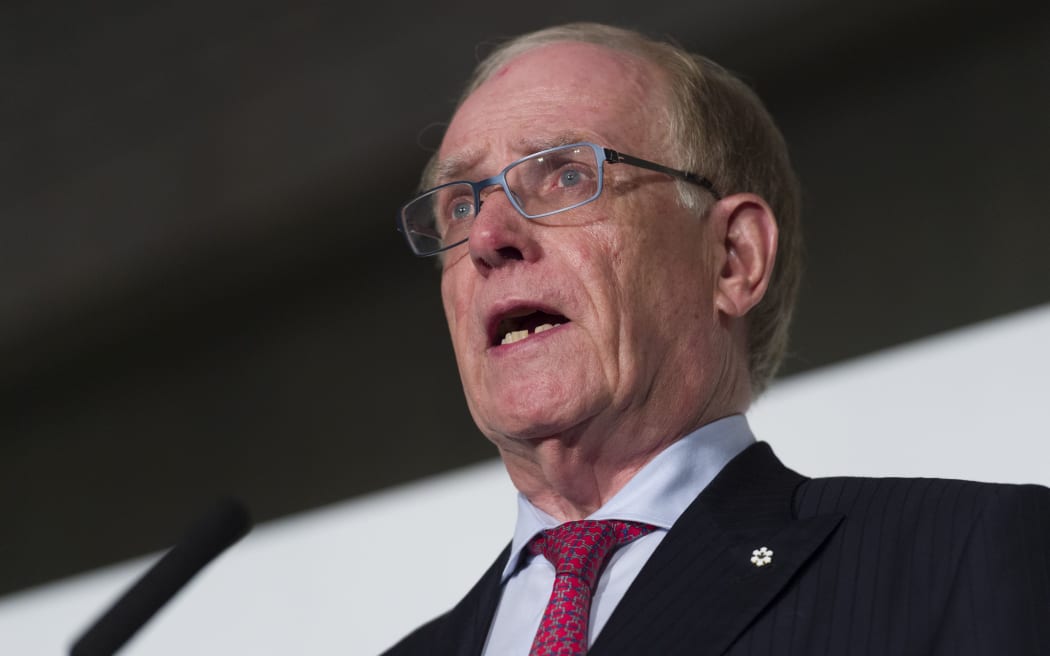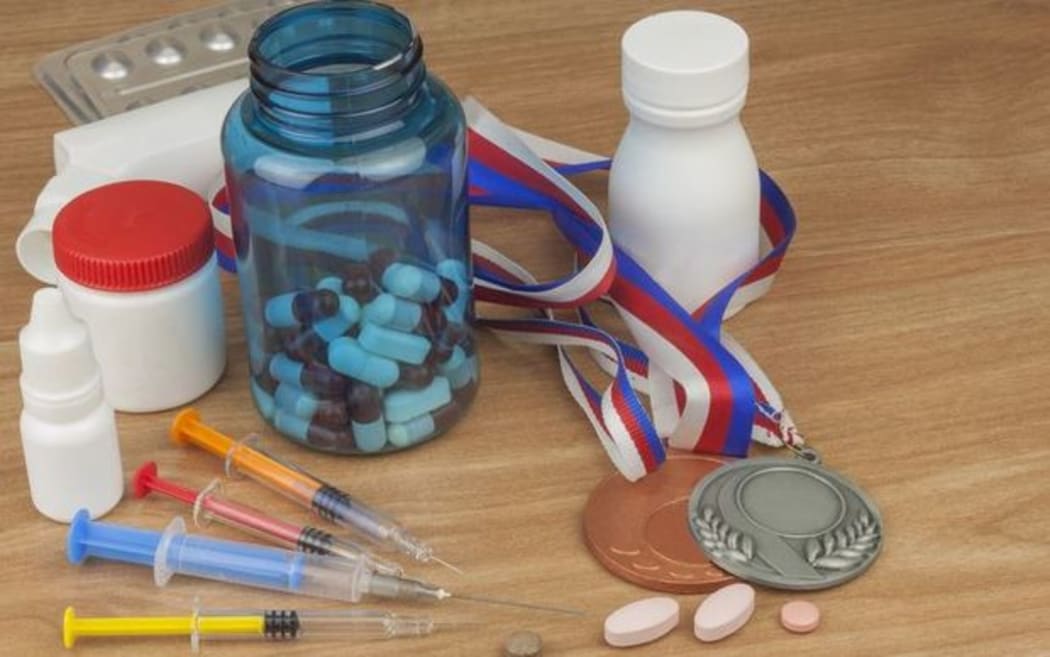An independent report claims more than 1000 Russian competitors across more than 30 sports were involved in an institutional conspiracy to conceal positive doping tests as Moscow 'hijacked international sport'.

Richard McLaren, head of the World Anti-Doping Agency (WADA)'s independent commission, during a press conference in London on doping abuse in Russian sport. Photo: AFP
The second and final part of the report for the World Anti-Doping Agency (WADA) by Canadian sports lawyer Richard McLaren provided exhaustive evidence of an elaborate state-sponsored doping scheme operated by Russia's Sports Ministry.
It included switching and changing samples by opening "tamper-proof" bottles - using a method devised by the Russian secret service - and numerous other methods to bypass and cover up drugs tests.
According to the report, salt and coffee were used to manipulate samples.
"We are now able to confirm a cover-up that dates back until at least 2011 that evolved from uncontrolled chaos to an institutionalised and disciplined medal-winning conspiracy," McLaren told a news conference overnight.
"It was a cover-up of an unprecedented scale and this report shows the evidence that increases the number of athletes involved, as well as the scope of the conspiracy.
"We have evidence revealing that more than 500 positive results were reported as negative, including well-known and elite-level athletes and medal winners, who had their positive results automatically falsified.
"Over 1000 athletes competing in Summer, Winter and Paralympic sport can be identified as being involved in or benefiting from manipulations to conceal positive tests."
McLaren's second report added depth and supporting evidence to the initial findings published in July - that Russia operated a state-sponsored doping programme.
It added that the system was refined over the course of the 2012 Olympics, 2013 Worlds and Winter Olympics to protect likely Russian medal winners.
"The desire to win medals superseded their collective moral and ethical compass and Olympic values of fair play," McLaren said.
Russia won 72 medals at the London Games, 21 of which were gold, and 33 medals at Sochi, 13 of which were gold.
WADA president Craig Reedie called the findings "alarming" and said the report would be of immediate value to sporting bodies responsible for punishing doping cases.
Russia denies doping programme

Russia damned in second McLaren report Photo: 123rf
But Russia showed no sign of accepting the report's conclusions.
The Sports Ministry said it would study the WADA report and cooperate fully with anti-doping bodies, but "denies that any government programmes exists to support doping in sport".
Athletics chief Dmitry Shlyakhtin declined to comment directly on the report because he said he had not seen it. He conceded that Russian athletics' problems "did not start yesterday", but said it had now fulfilled all the demands made of it.
The International Olympic Committee (IOC) on Thursday extended provisional sanctions against Russian sport over the scandal, and an international ban on its track and field athletes remained in force pending a reform of its anti-doping programme.
Yelena Isinbayeva, double Olympic pole vault champion and newly-elected head of the Russian Anti-Doping Agency supervisory board, said shortly before the report was released: "It is well known to us that many foreign athletes have a history of doping but compete at an international level with no problems.
"If we want to clean up world sport, let's start ... we don't need to concentrate on just one country."
Dmitry Svishchev, a member of parliament and president of Russia's Curling Federation, said: "We haven't heard anything new. Unfounded accusations against us all. If you are Russian, they accuse you of all sins."
Igor Lebedev, deputy speaker of the Russian parliament and a member of the executive committee of the Russian Football Federation, said: "This is yet another torrent of lies, disinformation, rumours and fables."
McLaren accepted that there could be widespread doping elsewhere, though not on the same level as in Russia, the sole focus of his investigation.
McLaren pointed out that Russia had many medals at the London Olympics and no Russian athlete had tested positive.
"Yet the Russian team corrupted the London Games on an unprecedented scale, the extent of which will probably never be fully established," he said.
"For years, international sports competitions have unknowingly been hijacked by the Russians. Coaches and athletes have been playing on an uneven field."
Forensic investigations by his team detailed how a bank of clean urine samples was kept in a Moscow laboratory, where salt and coffee were added to try to fool officials testing "B samples" in supposedly tamper-proof bottles.
How urine sample swapping worked
The first McLaren report explained how disappearing positive drug tests were secreted through "mouse holes" drilled by spies.
That was based on information received from Dr Grigory Rodchenkov, a director of the anti-doping laboratory at Sochi 2014.
He had said the Russian secret service developed ways of opening sample bottles and replacing their contents without intervention being detected.
- 1. Ahead of the Games, athlete gives clean urine sample when performance-enhancing drugs are not in their system
- 2. Russian authorities store sample in a freezer
- 3. Athlete resumes doping
- 4. At the Games, athlete gives urine samples watched by independent doping control officer as usual
- 5. The samples are smuggled out of the lab at night through a "mouse hole" between rooms and taken away by an FSB agent disguised as a sewer engineer
- 6. The tamperproof lids are removed in a manner which does not break the seal and the contaminated urine is replaced with the athlete's defrosted, clean sample
- 7. The bottle is passed back into the lab to await testing
The new report claims to have compiled clear details on exactly how the sample bottles in Sochi were tampered with.
Investigators used a tool which matched the description of one used by the FSB (Russian Federal Security Service), which leaves tiny marks and scratches when the inside of a cap is opened.
An expert was given 13 bottles, one of which had not been tampered with, which he immediately spotted.
In cases of alleged sample swapping, investigators found there were scratches and marks on the inside of the cap, along with DNA inconsistencies.
- Reuters / BBC

